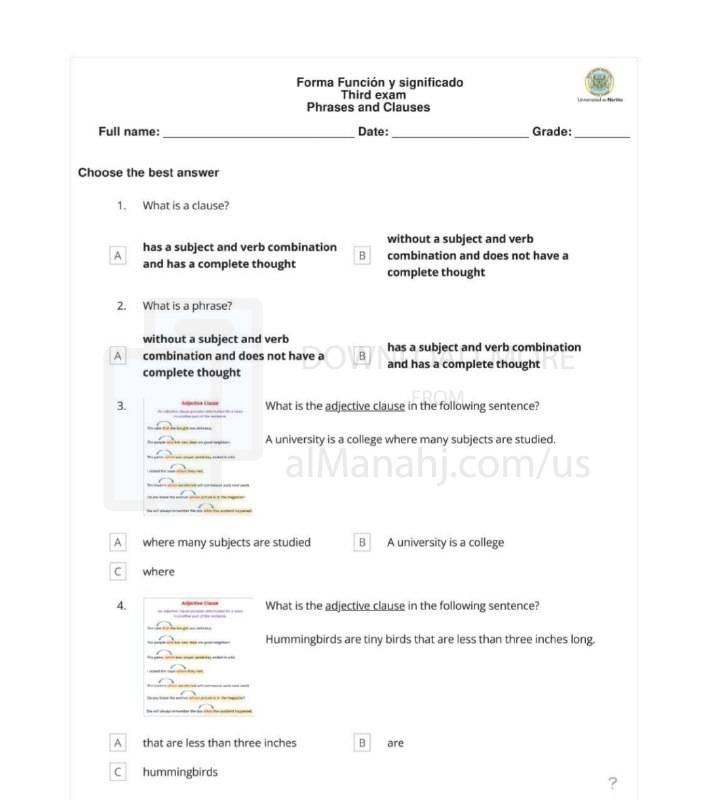| File info: An exam in English is an assessment that evaluates a person's proficiency and understanding of the English language. It typically covers various language skills, including reading, writing, listening, and speaking, and may be designed for different purposes and levels of proficiency.
Here are some key components and characteristics of an English exam:
1. Reading Comprehension: The exam may include passages or texts that test the candidate's ability to understand and interpret written English. Questions may focus on main ideas, supporting details, vocabulary, inference, and critical analysis.
1. Writing: The writing component assesses the candidate's ability to express themselves in written English. This may involve tasks such as writing essays, reports, letters, or summaries. Candidates are evaluated on their ability to organize ideas, use appropriate grammar and vocabulary, and communicate effectively.
1. Listening: The listening section evaluates the candidate's understanding of spoken English. It typically includes audio recordings or dialogues followed by questions that test comprehension, note-taking skills, and the ability to extract information from spoken sources.
1. Speaking: The speaking component assesses the candidate's ability to communicate orally in English. This may involve tasks such as conversations, interviews, or presentations. Candidates are evaluated on pronunciation, fluency, vocabulary usage, grammatical accuracy, and the ability to express ideas and opinions.
1. Vocabulary and Grammar: English exams often include specific sections to test a candidate's knowledge and usage of vocabulary and grammar. These sections may involve tasks such as matching words with definitions, completing sentences with appropriate words or verb forms, or identifying grammatical errors.
1. Time Limit: Exams are typically conducted within a specified time frame. Candidates must complete the tasks or sections within the given time limit, which adds a time management aspect to the examination.
1. Scoring and Evaluation: Exams are scored using predetermined criteria or rubrics. Candidates are assessed based on their performance in each section, and their overall proficiency level is determined. Scores may be presented as numerical values or proficiency levels (e.g., beginner, intermediate, advanced).
English exams serve various purposes, including academic assessments, language proficiency certifications (such as IELTS or TOEFL), job applications, or educational program requirements. They provide a standardized measure of a candidate's English language skills and help gauge their ability to communicate effectively in English-speaking environments.
To prepare for an English exam, candidates often practice with sample questions, study vocabulary and grammar rules, engage in extensive reading and listening activities, and participate in speaking practice sessions. Understanding the format and requirements of the exam is crucial for effective preparation and performance. |
